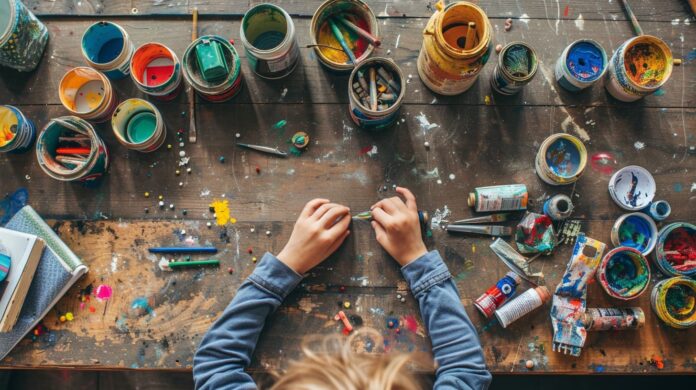Have you ever looked at leftover fabric scraps and wondered what to do with them? Don’t toss them out! Transform those remnants into stylish accessories with just a few simple steps. Let’s dive into the art of turning fabric scraps into treasures.
Why It Matters
Using leftover fabrics not only reduces waste but also encourages sustainability in a world of fast fashion. By upcycling, you can:
- Save money on buying new accessories.
- Reduce textile waste that contributes to environmental pollution.
- Embrace creativity and craft unique, personalized items.
Key Tools You’ll Need
Before starting, gather these essential tools:
- Fabric scraps – Cotton, silk, denim, or other materials.
- Basic sewing kit – Needles, thread, scissors, and pins.
- Glue gun (optional for no-sew projects).
- Elastic bands, beads, or clasps – For added functionality.
Step-by-Step Guide to Making Accessories
1. Fabric Scrunchies
Transform small fabric strips into trendy hair scrunchies.
- Cut fabric into a 4×18-inch strip.
- Fold lengthwise with the patterned side inward and stitch along the edge.
- Turn the tube right-side out and thread a 6-inch elastic band through.
- Tie the elastic ends together and close the fabric seam.
2. Patchwork Tote Bag
Perfect for larger scraps.
- Sew fabric pieces together to form a rectangular panel.
- Add lining fabric for durability.
- Attach handles made from leftover denim or thick straps.
3. Fabric Earrings
Use small, lightweight pieces to craft stylish earrings.
- Cut fabric into small shapes (e.g., circles or flowers).
- Attach them to earring hooks using glue or thread.
- Embellish with beads or sequins for extra flair.
4. Headbands
For medium-sized scraps:
- Cut fabric into a 3×20-inch strip.
- Fold and sew to create a tube, then slide it onto a plastic headband.
- Secure ends with glue or stitching.
Challenges and Benefits
Challenges:
- Limited fabric sizes: Smaller scraps can limit project options.
- Skill requirements: Beginners may need practice with sewing techniques.
Benefits:
- Unique designs tailored to your style.
- Eco-friendly approach to crafting.
- Creative satisfaction from making something new.
Real-World Examples
- Traditional Patchwork Quilts vs. Modern Accessories: While quilting uses large pieces, today’s upcycling focuses on quick, stylish items like bags and jewelry.
- DIY vs. Store-Bought: Handmade accessories often have sentimental value and originality, unlike mass-produced items.
Tips for Beginners
- Start with no-sew projects like fabric flowers or glued headbands.
- Use online tutorials for inspiration and step-by-step visuals.
- Keep experimenting with colors and patterns to find your style.
Conclusion
Creating accessories from leftover fabrics is a fun and fulfilling way to embrace sustainability. With a little creativity, you can turn scraps into something beautiful and functional. So grab those remnants and start crafting today!
FAQs
1. What types of fabric work best for accessories?
Cotton, silk, denim, and linen are versatile and easy to work with.
2. Can I create accessories without sewing?
Yes! A glue gun works wonders for projects like headbands and fabric flowers.
3. How do I care for fabric accessories?
Handwash delicate items and store them in a dry place to maintain quality.
Ready to upcycle your leftover fabrics? Dive into these projects and let your creativity shine!

